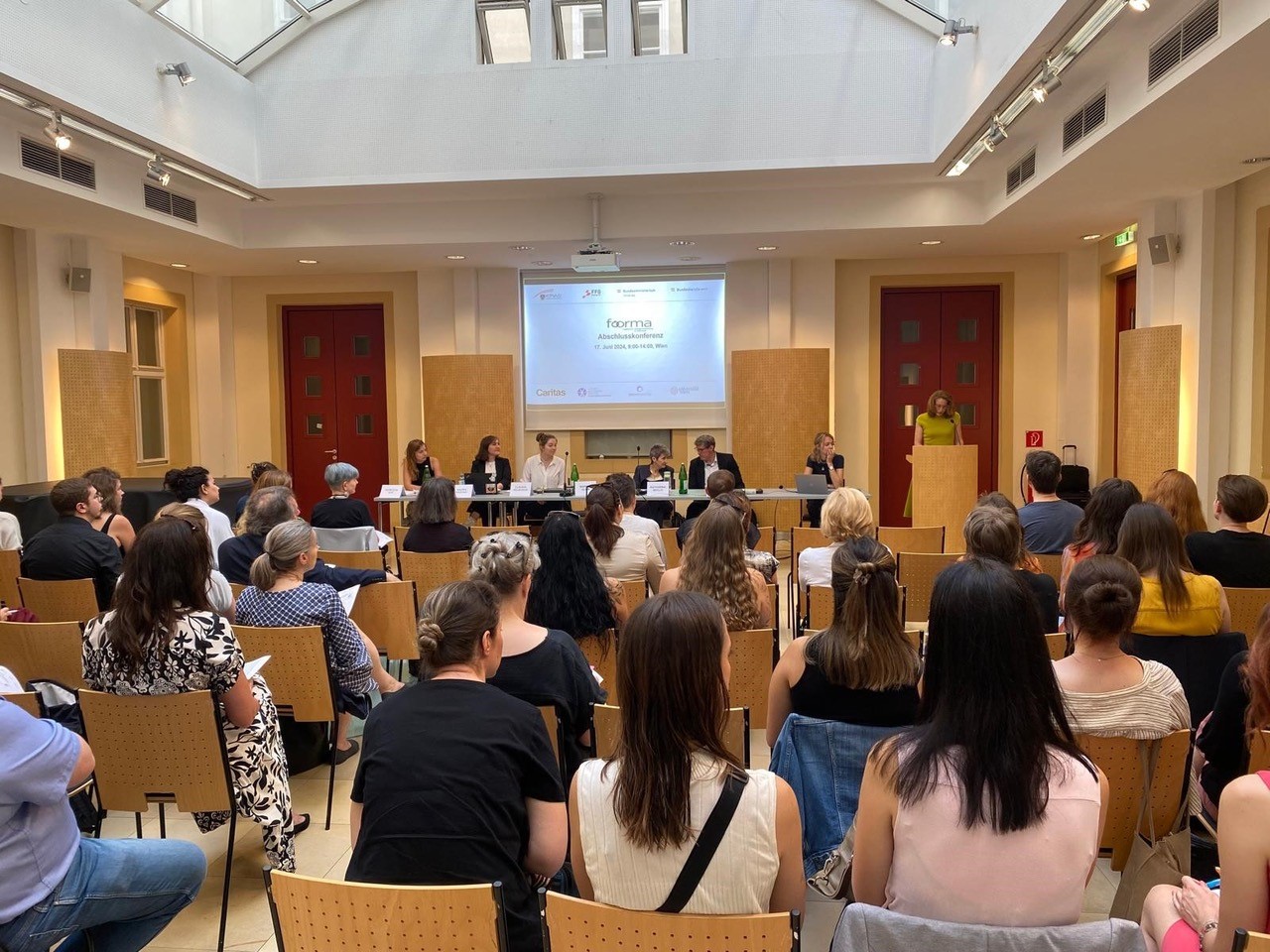Forced marriage in Austria is an underestimated phenomenon
FORMA research project presents first study on the situation in Austria and recommends various measures
On Monday, 17 June 2024, a multidisciplinary research team presented a report on the situation of forced marriage in Austria for the first time. After a year and a half of intensive research as part of the FORMA (Forced Marriages) project, the team, consisting of experts from Caritas, the Orient Express association, the University of Vienna and the Ludwig Boltzmann Institute of Fundamental and Human Rights (LBI-GMR), sees an urgent need for action.
According to international studies, at least 22 million people worldwide are affected by forced marriage, nine million of whom are children. This serious violation of human rights also occurs in Austria. However, the actual extent has so far remained largely unknown. Forced marriages are often prepared and carried out within the personal sphere, involving various dependencies, which complicates identification, victim protection, and law enforcement.
In order to investigate the situation in Austria, the researchers conducted qualitative interviews with experts and victims, analysed around 370 decisions by the Federal Administrative Court and evaluated 129 files from the Orient Express women’s counselling centre. In 70 per cent of the cases investigated by Orient Express, people were threatened or affected by forced marriage. In all cases, those affected experienced psychological violence, and in 90 per cent of cases there was also physical violence.
The research team recommends increased cooperation between victim protection organisations and schools as well as more education and awareness-raising, especially among young people. “In line with international human rights standards, we urgently recommend raising the minimum age for marriage to 18 and expanding counselling services for marriage candidates so that they learn more about the legal situation,” emphasises Helmut Sax, child rights expert and senior researcher at the LBI-GMR. According to the experts, the nationwide expansion of low-threshold contact points with multilingual psychosocial counselling is also crucial. In order to better research the problem of forced marriage in the future, the research team is calling for the systematic collection of gender-sensitive data and statistics on suspected cases of forced marriage.
The FORMA project is being implemented on behalf of the Federal Ministry of Interior and the Women’s and Gender Equality Section of the Federal Chancellery and with financial support from the Austrian Research Promotion Agency (FFG).
The complete final report will be published at the beginning of July 2024.
